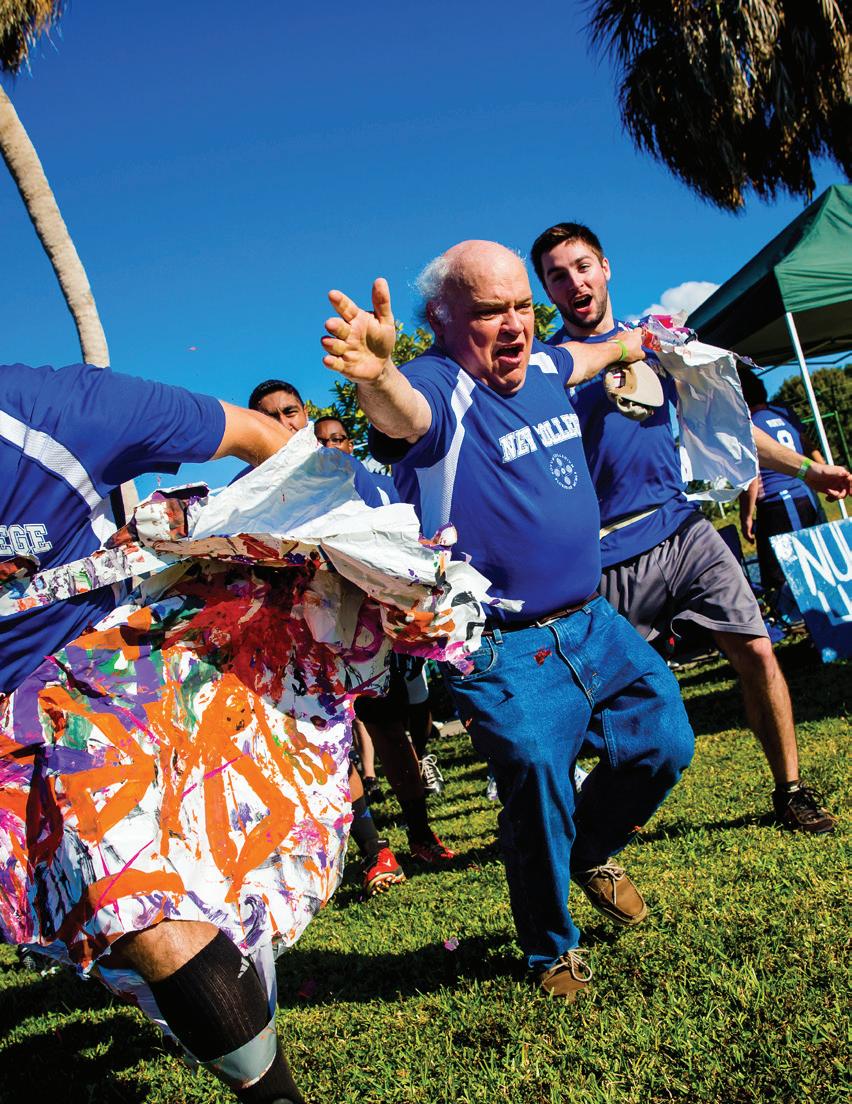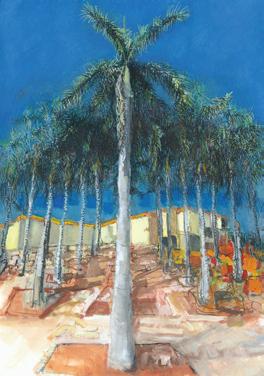
2 minute read
Ethics in Action
Sarah Hernandez Brings Diversity to the Forefront of Academics
BY SU BYRON
Advertisement
COLLEGES AND UNIVERSITIES ACROSS THE NATION strive to foster the values of diversity, inclusion and equity on their campuses. But what does that mean in practical terms?
For Sarah Hernandez, Ph.D., an associate professor of sociology and Latin American and Caribbean studies at New College, it’s more than an academic question. It’s a question of applied ethics.
“You can’t be a detached observer when it comes to these issues,” Hernandez said. “There are times you have to stand up and take sides. If you refuse to take sides, you’re already on the wrong side.”
Hernandez learned that lesson early. A childhood memory burned it on her brain. She remembers sitting in a bus in Mexico City and, outside her window, she saw a man viciously beating another man. The crowd stood by and watched. Nobody stepped in to help. Why not? Her young mind found it difficult to grasp.
“That incident stuck with me over the years,” Hernandez said. “If you don’t intervene, you end up being a conduit to harm. I vowed that I would never do that. I can’t stand and do nothing while somebody else is being victimized. I don’t want to be a conduit, so I try to do what I can.”
Hernandez joined the New College faculty in 1996. She brought her sense of ethical engagement with her. It also informs her work in two game-changing faculty groups.
She is a co-creator and member of the Faculty of Color and Underrepresented Groups (FOCUG) at New College. She is also a co-director (along with New College Associate Professor of Sociology Queen Zabriskie, Ph.D.) of the Initiative on Diversity and Equity in Academics (IDEA). Hernandez and Zabriskie are both recipients of Sarasota Magazine’s 2021 Unity Awards, which honor individuals in the Sarasota-Manatee area who fight for social justice. The FOCUG formed in 2017 as a common-cause collective for New College faculty members, and IDEA grew out it. What’s the big idea? Creating clarity on diversity and equity, and doing so across New College’s academic curriculum. “We address those issues in a number of courses,” Hernandez explained. “But that knowledge is fragmented—in bits and pieces. We offer courses on gender studies, African-American studies and so on. What we lack is a unified, theoretical understanding across the curriculum. To make that happen, you need a formal structure in place to look at the big picture.”
Hernandez and Zabriskie were already doing some of that work on an unofficial basis. In October 2020, the College made it an official position. As IDEA’s official co-directors, Zabriskie and Hernandez have been working hard ever since.
“We’re developing an interdisciplinary course on race and ethnicity,” Hernandez said. “We’re mapping out which academic programs currently deal with these subjects. What do we offer and what are the gaps? We’ll study that, and then fill in the gaps.” But how can professors teach students to think about diversity? Changing attitudes is only part of the equation. Institutions have to be changed as well. Creating a never-ending dialogue is a key element of New College’s mission—even when diversity, inclusion and equity are hard to discuss.
“We still have a long way to go,” Hernandez said. “But we’re off to a very good start—and that really takes courage.”










